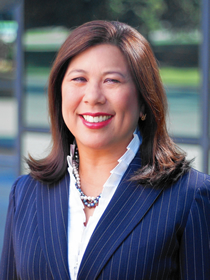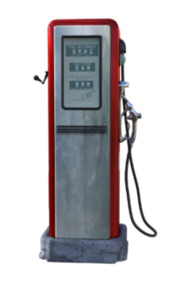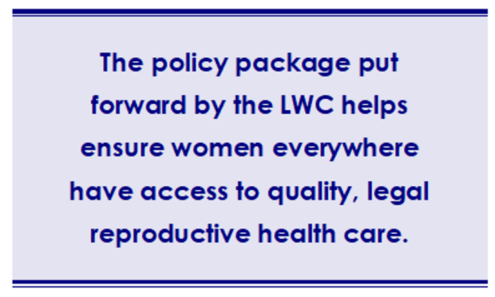You can also view this newsletter as a PDF.

California's Pension Funds Lead Global Charge
to Slash Emissions and Achieve Net-Zero
Over the eight years Controller Yee has served on the boards of the California Public Employees’ Retirement System (CalPERS) and the California State Teachers’ Retirement System (CalSTRS), she has been a vocal proponent for fully incorporating the risks posed by climate change into the investment process. During Controller Yee’s tenure on the boards of the nation’s two largest public pension funds, both have pledged to implement net-zero carbon emission portfolios by 2050.
Some large institutional investors and asset managers have begun to analyze carbon emissions challenges within their portfolios, driven by the realization that emissions must be ratcheted down now if there is any chance of limiting global warming to no more than 1.5 degrees Celsius. CalPERS initiated its first analysis of its global equity portfolio’s carbon emissions in 2015, finding that fewer than 100 companies were responsible for more than half of carbon emissions.
Since most institutional investors use indexes to guide their passive investment decisions, this finding meant their portfolios shared a common list of heavy emitters. The realization led to the creation of Climate Action 100+, which Controller Yee helped launch at the 2017 One Planet Summit in Paris. The initiative focuses on collectively engaging 166 top emitters in several sectors including oil and gas, agriculture, transportation, utilities, and heavy industry. This effort, which has expanded to more than 700 investors with a combined portfolio value of $68 trillion, has resulted in 111 companies making commitments to reduce emissions by 25 percent of the greenhouse gas (GHG) emitted today. The work of California’s public pension funds has been focused on these same goals, even while employing different approaches.
 CalSTRS’ Approach
CalSTRS’ Approach
In addition to working with the Climate Action 100+ initiative from the onset and leading a string of engagements, CalSTRS began investing in a low-carbon public equities index in 2016. This early work helped to inform CalSTRS’ view on how best to shift the portfolio; the Board adopted the Low-Carbon Transition Work Plan in 2019 with the specific goals of analyzing portfolio emissions and charting a path forward. The Board also adopted an investment belief in early 2020 stating that investment risks associated with climate change and the related economic transition – physical, policy, and technology driven – materially affect the value of CalSTRS’ investment portfolio.
In 2021, CalSTRS issued its pledge to reach net zero by 2050, with staff presenting their plan to the Board in September. The following components will help reduce Scope 1 (direct emissions) and Scope 2 (emissions from purchased energy) carbon emissions in the Global Equity portfolio, which represents approximately 42 percent of CalSTRS investments ($120 billion):
Set a 2030 interim emissions reduction goal for the total fund to reduce emissions by 50 percent.
This target is based on the United Nations' Intergovernmental Panel on Climate Change report released earlier this year, which found that GHG emissions must be cut in half by 2030 in order to reach net zero by 2050. To date, 1,605 companies in CalSTRS’ public equities portfolio have established science-based targets, including near-term targets, which would reduce their emissions by 50 percent by 2030.
Adopt a net-zero investment decision-making process that incorporates a comprehensive analysis of the impact on risk, return, emissions, and funding status associated with any investment decisions presented to the investment committee. This annual review would include input from external experts and consider impacts from the global economy’s emissions profile.
Reduce emissions in public equity by adopting a target allocation of 20 percent to the MSCI ACWI Low-Carbon Target Index. CalSTRS evaluated five different indexes before selecting the MSCI ACWI Low-Carbon Target Index. Of the indexes studied, this has the highest carbon emissions reduction per unit of active risk, and a long track record of solid performance. Starting with a 20-percent allocation (approximately $23 billion currently) would reduce portfolio emissions in a risk-controlled manner.
Integrate climate scenarios into the CalSTRS Asset-Liability Management framework. This will enable the investment office to fully incorporate climate risk into investment decisions as CalSTRS moves to decarbonize its portfolio.
In support of the efforts listed above, CalSTRS actively engages with companies to encourage them to incorporate climate impacts into their long-range planning, and with policymakers to push for standard disclosures. Staff plan to work with other asset class portfolios to measure carbon footprints and push for reductions in emissions as appropriate. They also continue to build on early work in climate-solution investing and have more than $20 billion in low-carbon solutions today including real estate, renewable power, and companies focused on providing climate solutions. CalSTRS staff will continue to review Scope 3 emissions, which are a consequence of a company’s activities, such as emissions produced by a product they sell.
CalPERS’ Focus
Building on its earlier work, CalPERS in 2019 announced its commitment to accelerating the decarbonization of its investments in line with limiting global warming to 1.5 Celsius by 2050. In addition to the ongoing carbon footprinting of its equities, fixed-income, and real estate portfolios, CalPERS continues to take a leadership role in the Climate Action 100+ initiative. The fund also engages regularly with policymakers and regulators to support additional disclosures. Last year, CalPERS co-founded the ESG Data Convergence Initiative to accelerate reporting on GHG emissions and renewable energy in private equity investments. Controller Yee believes it is important to work with industry to improve transparency in these investment areas.
CalPERS released its second Taskforce on Climate Related Financial Disclosure report, detailing its strategies and risk management of sustainable investments. CalPERS believes the ongoing focus on these issues and the transition will provide investment opportunities in climate solutions. To date, CalPERS has invested approximately $20 billion in these companies, as well as another $20 billion in sustainable real estate and infrastructure. This work has resulted in a 30-percent decrease in the global equity portfolio’s weighed average carbon intensity since 2015, as companies decarbonize their operations and allocations shift to cleaner companies.
Controller Yee Highlights Key 2021-22 Legislative Successes
The second year of the 2021-22 legislative session marked the beginning of the transition back to pre-COVID-19 pandemic operations. While the Legislature still enforced safety precautions, legislative hearings took place in person, legislative staff returned to the office, and the State Capitol was abuzz.
Between 11th-hour negotiations on enhanced climate goals, moving to bolster the guarantee of reproductive rights, soaring increases in the cost of living, and what was projected to be a staggering budget surplus, the legislature passed historic investments in many of Controller Yee’s priority areas of focus.
 Climate Resilience
Climate Resilience
This year, the legislature committed $54 billion to addressing climate change and its impacts. This unprecedented climate package focuses largely on wildlife and forest resilience, drought response and resilience, energy reliability, extreme heat, nature-based solutions, and zero-emission vehicles. Specifically, this funding allows for a government-wide response to the climate crisis by integrating climate actions across areas such as transportation, health, housing, schools, and job training.
 Inflation Relief
Inflation Relief
In an effort to assist Californians who have seen a dramatic increase in the price of everyday goods such as food and gasoline, lawmakers passed and the governor signed Assembly Bill 192 (Committee on Budget), known as the Middle Class Tax Refund. Through this bill, up to 23 million Californians will receive $9.5 billion in direct relief, with refunds of up to $1,050 based on income and family size, regardless of immigration status. The State Controller’s Disbursements team and the Franchise Tax Board (FTB) began issuing payments in October; payments will continue into January.
Affordable Housing
 In the continued effort to address California’s housing affordability crisis, two bills aimed at increasing California’s housing supply stand out. Senate Bill 6 (Caballero) – the Middle-Class Housing Act – will spur the creation of housing in existing commercial and retail spaces, and will help make homeownership more attainable for working families. AB 2011 (Wicks) – the Affordable Housing and High Road Jobs Act – will accelerate production of millions of affordable and mixed-income housing along transit-friendly commercial corridors.
In the continued effort to address California’s housing affordability crisis, two bills aimed at increasing California’s housing supply stand out. Senate Bill 6 (Caballero) – the Middle-Class Housing Act – will spur the creation of housing in existing commercial and retail spaces, and will help make homeownership more attainable for working families. AB 2011 (Wicks) – the Affordable Housing and High Road Jobs Act – will accelerate production of millions of affordable and mixed-income housing along transit-friendly commercial corridors.
While Controller Yee applauds the efforts and progress made toward addressing the state’s unmet housing needs, she asserts more must be done to accelerate housing development. In an effort to achieve this, Controller Yee sponsored AB 2305 (Grayson) to create a one-stop shop for the state’s affordable housing financing programs. This streamlining effort would have allowed affordable housing to be built more quickly in California. Unfortunately, the bill was held in the Senate Housing Committee.
 Reproductive Rights
Reproductive Rights
In response to the Supreme Court of the United States’ decision to overturn Roe v. Wade, the Legislative Women’s Caucus (LWC) introduced a package of bills that ensures California will continue to guarantee the protection of reproductive rights for all. Controller Yee was a vocal, early proponent of these measures. With the policy package put forward by the LWC, California defines itself as a safe haven for women in need of reproductive health care. While Californians are fortunate to enjoy these protections, Controller Yee does not believe access to reproductive health care should be determined by geographic boundaries or regional biases. This package enhances protections for all Americans, and helps ensure women everywhere have access to quality, legal reproductive health care. These measures are consistent with statewide voter approval of Proposition 1 earlier this month, which enshrines the right to abortion and contraceptives in the California Constitution.
Workforce Protections
 Another significant bill passed and signed into law this session is AB 2183 (Stone), which provides farmworkers the flexibility to cast a secret ballot by mail when voting for or against union representation. As a former member of the California Future of Work Commission (FOWC), Controller Yee recognizes the importance of addressing the challenges facing California workers. One of the FOWC’s key findings, which could worsen if unaddressed, is declining worker power and organization, and the correlation to inequality, declining job quality, and violations of workers’ rights. The provisions contained in AB 2183 are consistent with the final recommendations approved by the FOWC and safeguard farmworkers’ right to organize when seeking more equitable pay and improved working conditions.
Another significant bill passed and signed into law this session is AB 2183 (Stone), which provides farmworkers the flexibility to cast a secret ballot by mail when voting for or against union representation. As a former member of the California Future of Work Commission (FOWC), Controller Yee recognizes the importance of addressing the challenges facing California workers. One of the FOWC’s key findings, which could worsen if unaddressed, is declining worker power and organization, and the correlation to inequality, declining job quality, and violations of workers’ rights. The provisions contained in AB 2183 are consistent with the final recommendations approved by the FOWC and safeguard farmworkers’ right to organize when seeking more equitable pay and improved working conditions.
AB 257 (Holden) also was signed into law, creating the Fast Food Council within the Department of Industrial Relations (DIR). The Council will provide a venue for fast food workers to have a seat at the table and a stronger voice relating to setting fair wages and health and safety standards. Members of the Council will include fast food workers and their advocates, franchisees, franchisors, and representatives from the Governor’s Office of Business and Economic Development and DIR.
Budget
The FY 2022-23 Budget Act signed this summer includes several important initiatives Controller Yee supported:
- The Budget Act of 2022 (SB 154 – Chapter 43, Statutes of 2022) appropriates $1 million to the State Lands Commission (SLC), which Controller Yee chairs, to develop a cost study regarding state buyout of offshore oil and gas leases. This appropriation corresponds with AB 2257 (Boerner Horvath, Chapter 692, Statutes of 2022), highlighted below and sponsored by Controller Yee.
- SB 201 (Committee on Budget and Fiscal Review, Chapter 72, Statutes of 2022) establishes a new Foster Youth Tax Credit to provide foster youth an additional $1,000 per household.
- AB 194 (Committee on Budget, Chapter 55, Statutes of 2022) provides relief to low-income individuals who received the earned income tax credit by preventing tax refund offsets. FTB administers the Interagency Intercept Collection (IIC) Program on behalf of the State Controller’s Office, which intercepts refunds from individuals to cover outstanding debts with public agencies. AB 194 provides a permanent solution to minimize the hardship that tax refund offsets can cause low-income families.
Sponsored Bills Signed into Law
In 2022, Controller Yee sponsored numerous policy bills in the California Legislature. While a few did not make it to the Governor’s desk, two bills were signed into law and deserve to be highlighted.
AB 2257 directs SLC to develop a cost study to measure the fiscal impact of a voluntary buyout of remaining offshore oil and gas lease interests in state waters. As previously mentioned, funding for this cost study was secured in the budget.
AB 2280 (Reyes, Chapter 282, Statutes of 2022) establishes a Voluntary Compliance Program (VCP) to increase compliance with California’s Unclaimed Property Law (UPL). SCO estimates less than two percent of businesses are compliant with UPL, and businesses that are out of compliance could be holding more than $17.6 billion in unclaimed property.
Although SCO administers California’s Unclaimed Property Program, existing law does not explicitly grant SCO authority to create and administer a VCP. AB 2280 establishes a VCP, allowing SCO to waive penalty interest for past-due properties reported by holders that voluntarily enroll, are accepted by SCO, and successfully complete the program. This VCP will increase the number of holders in compliance with the UPL, annual revenues from additional remittances, properties returned to rightful owners, and public awareness of the UPL.